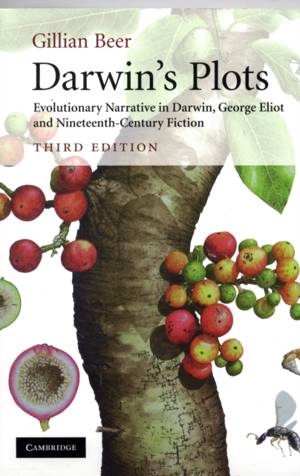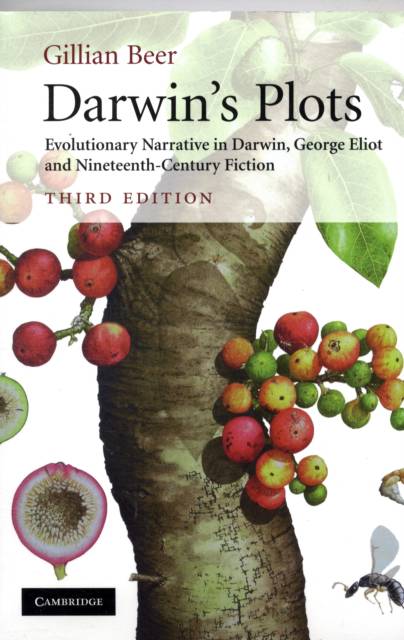
Door een staking bij bpost kan je online bestelling op dit moment iets langer onderweg zijn dan voorzien. Dringend iets nodig? Onze winkels ontvangen jou met open armen!
- Afhalen na 1 uur in een winkel met voorraad
- Gratis thuislevering in België vanaf € 30
- Ruim aanbod met 7 miljoen producten
Door een staking bij bpost kan je online bestelling op dit moment iets langer onderweg zijn dan voorzien. Dringend iets nodig? Onze winkels ontvangen jou met open armen!
- Afhalen na 1 uur in een winkel met voorraad
- Gratis thuislevering in België vanaf € 30
- Ruim aanbod met 7 miljoen producten
Zoeken
Darwin's Plots
Evolutionary Narrative in Darwin, George Eliot and Nineteenth-Century Fiction
Gillian Beer
Paperback | Engels
€ 72,45
+ 144 punten
Uitvoering
Omschrijving
Gillian Beer's classic Darwin's Plots, one of the most influential works of literary criticism and cultural history of the last quarter century, is here reissued in an updated edition to coincide with the anniversary of Darwin's birth and of the publication of The Origin of Species. Its focus on how writers, including George Eliot, Charles Kingsley and Thomas Hardy, responded to Darwin's discoveries and to his innovations in scientific language continues to open up new approaches to Darwin's thought and to its effects in the culture of his contemporaries. This third edition includes an important new essay that investigates Darwin's concern with consciousness across all forms of organic life. It demonstrates how this fascination persisted throughout his career and affected his methods and discoveries. With an updated bibliography reflecting recent work in the field, this book will retain its place at the heart of Victorian studies.
Specificaties
Betrokkenen
- Auteur(s):
- Uitgeverij:
Inhoud
- Aantal bladzijden:
- 330
- Taal:
- Engels
Eigenschappen
- Productcode (EAN):
- 9780521743617
- Verschijningsdatum:
- 29/05/2009
- Uitvoering:
- Paperback
- Formaat:
- Trade paperback (VS)
- Afmetingen:
- 150 mm x 226 mm
- Gewicht:
- 521 g

Alleen bij Standaard Boekhandel
+ 144 punten op je klantenkaart van Standaard Boekhandel
Beoordelingen
We publiceren alleen reviews die voldoen aan de voorwaarden voor reviews. Bekijk onze voorwaarden voor reviews.











